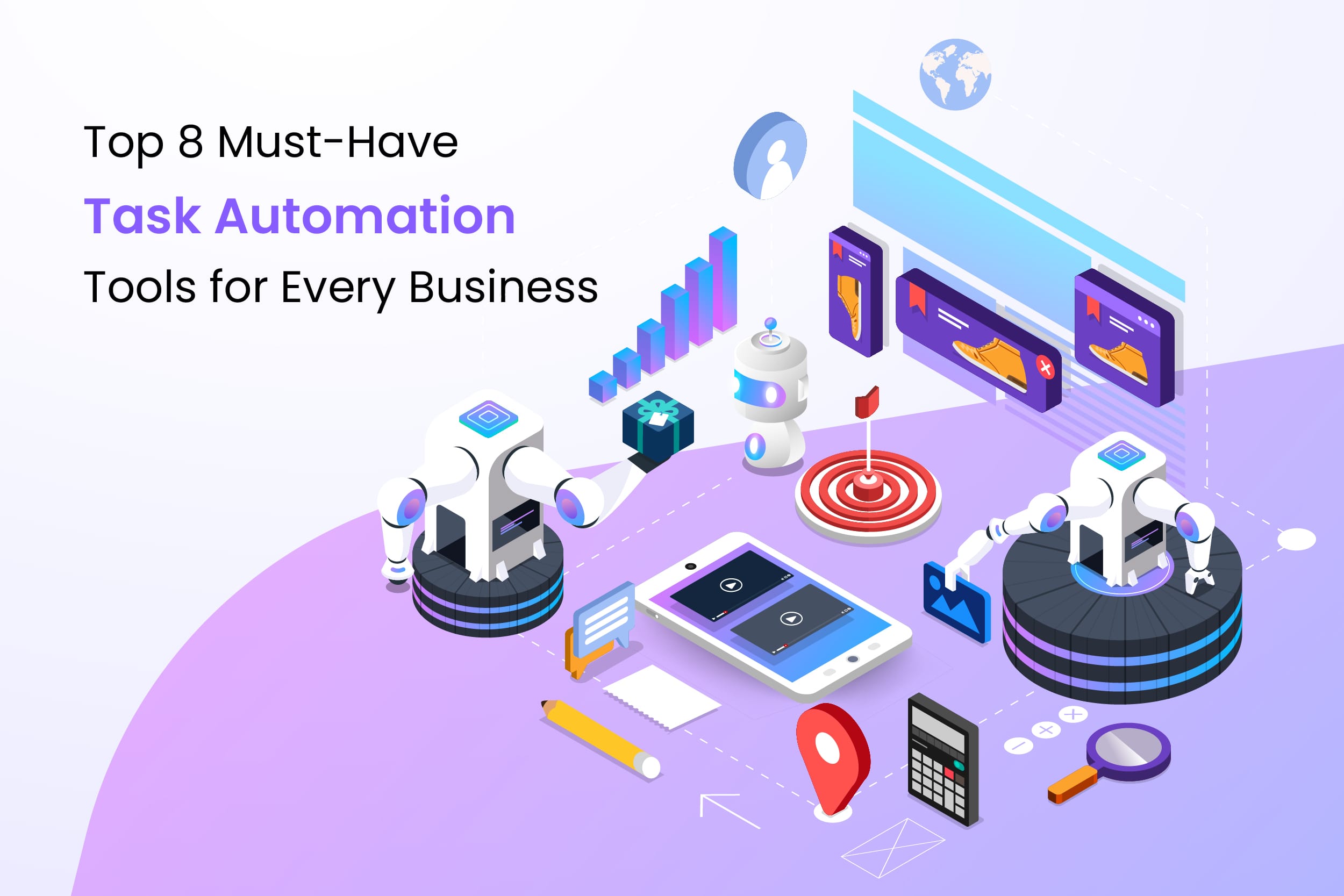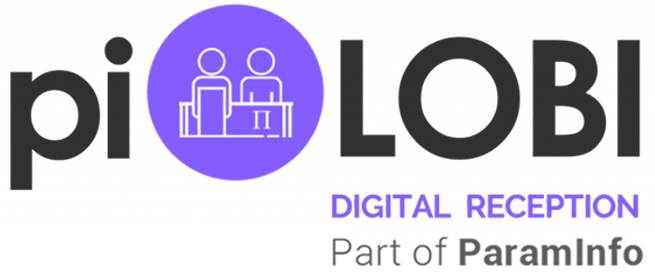
Top 8 Must-Have Task Automation Tools for Every Business
Navigating the complex business management landscape requires balancing operational processes, human capital, strategic partnerships, and customer satisfaction. As customer expectations expeditiously evolve, an increasing number of companies are adopting automation technologies strategically to align with the market’s forward-looking demands and acquire outstanding levels of scalability.
That’s why, at present times, automation tools in business shouldn’t be regarded as a trend; rather, they must be something you should solemnly leverage in your organization.
Utilizing these automation tools, organizations can maximize productivity, minimize manual labor, and streamline their business operations. Nevertheless, prior to making any investments, it is important to understand the distinct products and skills required to use the products.
In this article we will explore the top 8 task automation tools that may boost growth, enhance customer service, and transform operations. You will also discover the latest technologies that would take your company to new heights in 2024, from workflow automation to CRM, project management, and AI solutions.
Overview of Business Automation Tool
Business automation tools integrate advanced technologies like artificial intelligence, machine learning, and programming to automate different business procedures and tasks. Implementing these automation tools will build on your organization’s operational efficiency.
So, let’s walk you through some highlighted reasons why you must implement business automation tools that can be a game-changer for your company:
Good Customer Experience
Automated workflows ensure smooth customer service, while marketing automation tailors communication based on customer data, improving customer satisfaction and loyalty.
Enhanced Allocation of Resources
Automating tasks minimize labor costs, saves time and money by reducing errors, improves efficiency, and allows for greater investment in skilled employees and other business areas.
Improved productivity
Automation simplifies tasks, liberating your team for strategic work. It minimizes errors, eliminates bottlenecks, and enhances productivity.
Competitive Advantage
Business automation tools empower rapid adaptation to market changes, lessen errors, and boost product quality. This ultimately improves your competitive edge.
Top 8 Task Automation Tools Every Business Needs
Machine learning and artificial intelligence are all over the place in corporate applications as they simplify procedures and increase output.
The following are eight exceptional task automation tools that allow you to achieve and sustain business growth in 2024:
1. piLOBI – Visitor Management System
piLobi is an excellent automation tool designed to help businesses better manage visitor traffic. Office and workspace automation has grown in relevance in 2024. PiLobi distinguishes out for its ability to streamline visitor check-ins, host notifications, and real-time visitor tracking. Technology increases office productivity by automating procedures, guaranteeing seamless and secure visitor experiences.
Key Features:
- You can do quick and easy visitor check-in through QR codes.
- With real-time host notification features, it automatically emails the host when a visitor arrives and shows where they can be picked up.
- PiLOBI offers features that maximize the protection of your property, such as visitor facial capture, digital signature storage, and permission-based visitor access.
2. Zapier—Workflow Automation
Zapier is one of the most famous automation tools in 2024. It integrates with over 7,000 different apps instantly, leading businesses to automate tasks between web applications without coding. Whether posting on social media, sending emails, or syncing contacts, Zapier validates businesses’ workflows to streamline them effortlessly.
Key Features:
- It can integrate with popular apps like Slack, Google Workspace, and Trello.
- It has another feature related to customizable workflows known as “Zaps.”
- You can get real-time automation with conditional logic.
3. HubSpot—CRM and Marketing Automation
HubSpot is a well-known CRM and marketing automation tool used by over 194,000 organizations globally. The most important feature of this application is that it is free for everyone.
It may manage time-consuming activities like delivering customized emails, gathering consumer information for marketing campaigns and service enhancements, as well as planning social media postings.
The tool’s interaction with various platforms and applications allows it to function as a single marketing hub. As a result, you can monitor the status and effectiveness of marketing efforts using the updated customer database to modify prospective initiatives.
4. Google Bard (Gemini)—Content Creation
For small organizations, Gemini is an excellent marketing automation tool that streamlines brainstorming ideas and creating content. Interestingly, Gemini has received over 140.6 million monthly visits.
With its vast information databases, Gemini, Google’s newest artificial intelligence product, can respond to your queries and produce a variety of unique content based on your specifications.
Therefore, this tool is perfect for an organization’s marketing teams to quickly generate content or thoroughly research any topic.
5. Monday.com—Project Management
Monday.com is a renowned project management platform that offers automation capabilities to enhance teamwork and efficiency. By utilizing Monday’s automation features, teams may automate tedious processes in project workflows, like notifications, status updates, and dependencies. Projects can be divided into manageable tasks, subtasks, and milestones, allowing all parties to follow a clear and concise plan.
Key Features:
- You can get automation templates for a wide range of project tasks.
- Teams can automate repetitive processes and guarantee that important deadlines are fulfilled by configuring personalized triggers according to project timeframes.
- Integration with other tools like Gmail, Slack, and Zoom can be possible.
6. IFTTT (If This Then That)
With the help of IFTTT, organizations can build “applets” that link various services and automate processes in relation to specific occurrences. The platform is a favorite among small businesses that want to automate anything from social media postings to CRM changes because of its ease of use and flexibility.
Key Features:
- With IFTTT, it is simple to create applets for non-technical users.
- Integration with over 600 apps, including Google Assistant and Dropbox, is possible with this tool.
- Implementing real-time automation enhances the responsiveness and efficiency of both smart home devices and business tools.
7. Microsoft Power Automate
For those who are currently using Outlook, Microsoft Power Automate is an excellent choice. This automation software helps you create safe workflows and automate repetitive chores more efficiently.
Creating these workflows requires minimal to no coding, and integrated AI features free up your time to concentrate on more important activities by eliminating manual tasks. One tool for robotic process automation is the Microsoft Power Automate Desktop feature, which records workflow stages on your desktop or online. You may alter these recordings to construct an automated process.
8. Xero—Accounting Management
Small businesses that expand will require more accounting services, and Xero can help by automating the time-consuming financial and administrative chores that managers of an organization must perform. Moreover, you can monitor your company’s financial status in real time because you may access the software from anywhere at any time.
Bottom Line
All essential facets of your business are covered by the task automation tools we have covered above. Your business operations can take a big step forward with the help of these automation tools, working as your assistants. They can automate all manual tasks, show workflows, monitor project status, and inspire your employees.
To select the best automation tools, you must consider important aspects, including your objectives, needs, and financial constraints.





